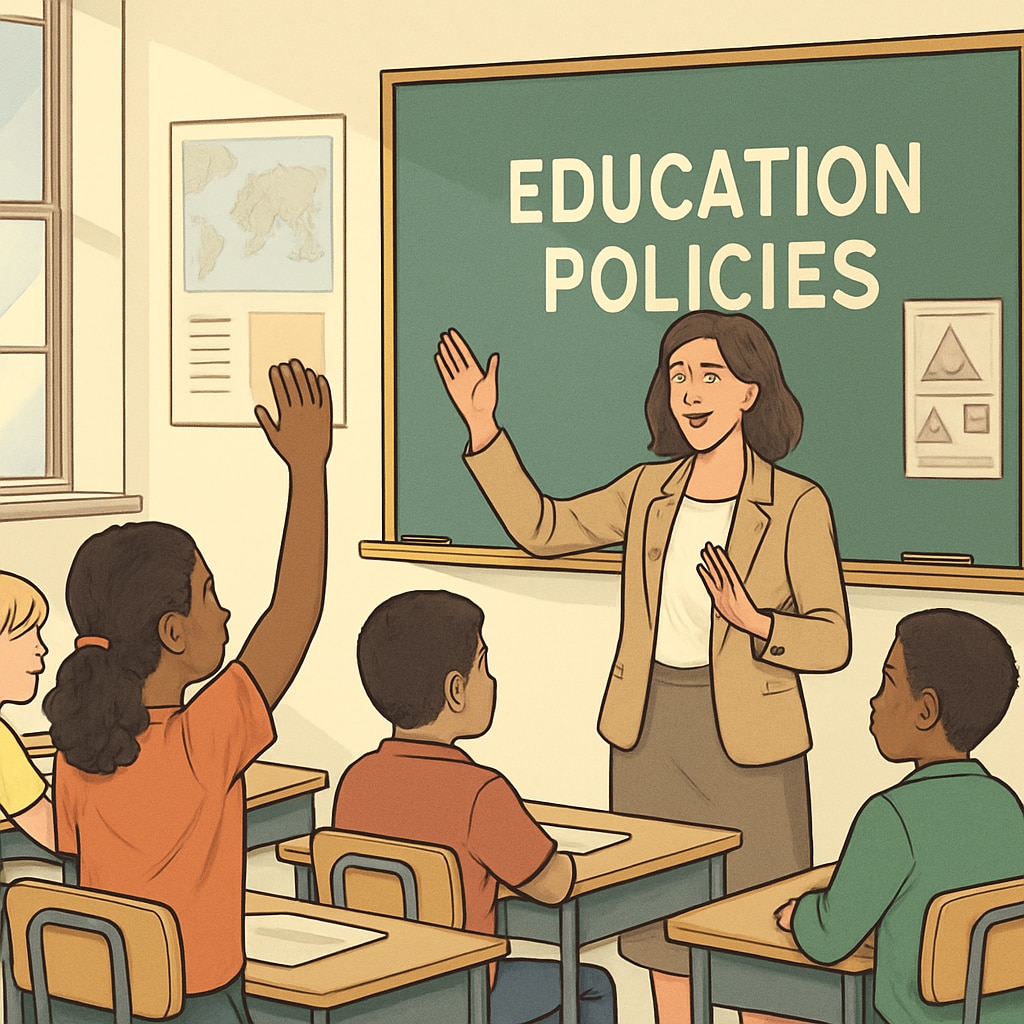In a controversial move, Oklahoma has introduced a new policy requiring political stance tests for out-of-state teacher applicants. This decision has ignited widespread debate, raising concerns about its impact on the education system, the teaching profession, and the broader implications for freedom of thought. By exploring the motivations behind this policy, the potential consequences, and how it aligns with educational values, we can better understand the challenges it presents.
What Is Oklahoma’s Political Stance Test?
The political stance test is a vetting process aimed at evaluating the political beliefs of teachers applying from outside Oklahoma. While the state claims this measure is designed to ensure that educators uphold what they consider “core values,” critics argue that it could lead to ideological discrimination. The process reportedly involves questions about personal political views, teaching methodologies, and stances on controversial topics such as race, gender, and history education.

Opponents of the policy argue that it undermines the professional autonomy of teachers and risks creating a politically homogenized educational environment. Proponents, however, believe it is necessary to maintain the state’s cultural and moral standards in schools.
Why Is Oklahoma Implementing This Policy?
The stated rationale behind the political stance test is to ensure that teachers align with the state’s educational framework and values. Oklahoma education officials have expressed concerns about the potential spread of what they deem “divisive ideologies” from other states. As a result, the policy is framed as a safeguard to prevent the infiltration of ideas that might conflict with local norms.
However, many educators and policy analysts view this move as a political strategy. By filtering out teachers with differing viewpoints, the policy could reinforce a particular ideological narrative in schools, limiting diverse perspectives and critical thinking.

The Consequences of Political Filtering in Education
Implementing a political stance test for teachers raises several significant issues:
- Teacher Shortage: Oklahoma is already experiencing a teacher shortage, and this policy may further deter qualified professionals from applying. This could lead to larger class sizes and reduced educational quality.
- Chilling Effect: Teachers may feel pressured to conform to specific political ideologies, potentially stifling creativity and open discussion in the classroom.
- Legal Challenges: Critics argue that the policy may violate constitutional protections, such as freedom of speech and equal employment opportunities, leading to possible legal disputes.
Furthermore, the policy risks alienating educators who bring diverse experiences and perspectives, which are essential for fostering critical thinking and preparing students for a pluralistic society.
Balancing Educational Integrity and Professional Freedom
Finding a balance between maintaining educational standards and respecting professional freedom is crucial. Instead of political stance tests, states could adopt alternative measures to ensure quality education, such as:
- Professional Development: Offering training programs that align teachers with state standards without infringing on personal beliefs.
- Transparent Guidelines: Establishing clear, non-discriminatory criteria for evaluating teacher qualifications.
- Open Dialogue: Encouraging discussions between educators and policymakers to address concerns and find common ground.
By focusing on collaboration and mutual respect, states can create an educational environment that values both integrity and diversity.
Conclusion
Oklahoma’s implementation of political stance tests for out-of-state teacher applicants is a polarizing issue with far-reaching implications. While the state seeks to protect its values, the policy raises critical questions about educational freedom, equity, and the role of diversity in schools. As the debate continues, the challenge lies in striking a balance between preserving educational integrity and respecting the rights of educators. The outcome will undoubtedly shape the future of Oklahoma’s education system and potentially set a precedent for other states.
Readability guidance: The article uses short paragraphs, clear subheadings, and bullet points to ensure clarity. It maintains an active voice and incorporates transition words to enhance flow and coherence.


